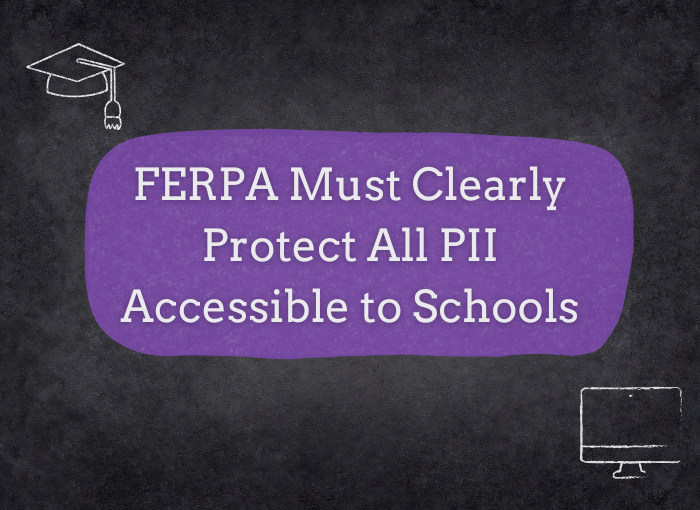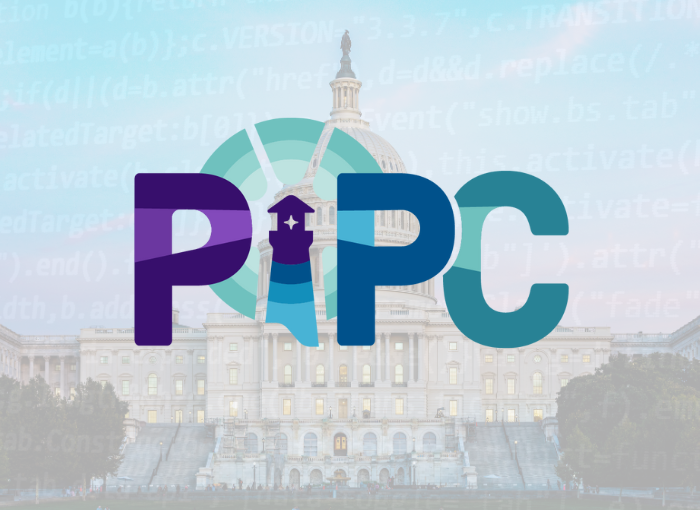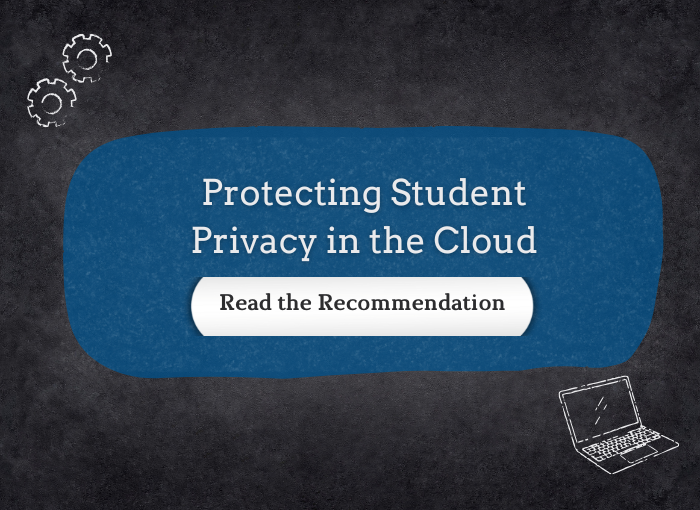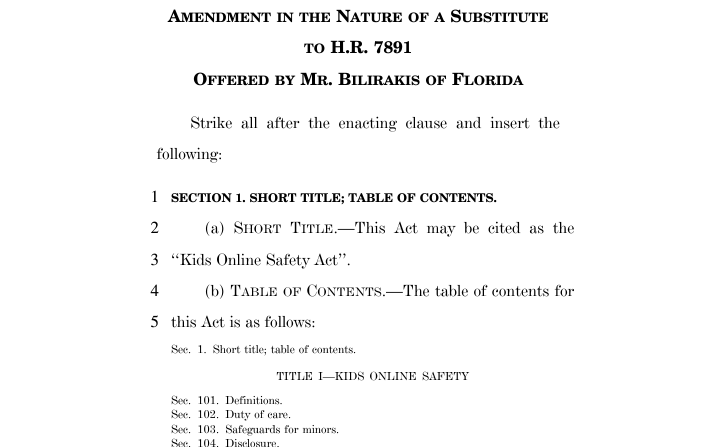Fixing FERPA: FERPA Must Clearly Protect All PII Accessible to Schools
FERPA Must Clearly Protect All PII Accessible to Schools January 28, 2025 Jessica Arciniega, Katherine Kalpos, Morgan Sexton, Amelia Vance, and Casey Waughn CC BY-NC 4.0 An eighth-grade teacher, Mr. Denning, is shown a video of one of his students, Lauren, candidly discussing her recent experience overcoming mental health struggles on Instagram. He makes a note of what Lauren said in her profile on the school’s student information system (SIS) so that the school guidance counselor can access this information when meeting with Lauren in the future. The note Mr. Denning added is protected under the Family Educational Rights […]
Fixing FERPA: FERPA Must Clearly Protect All PII Accessible to Schools Read More »







